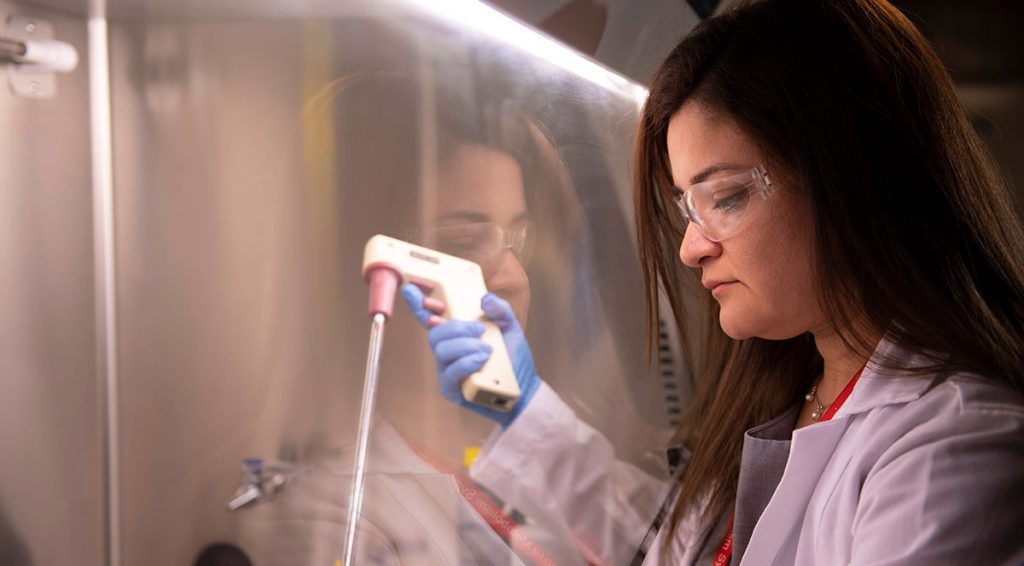22 May Morgridge Postdoctoral Fellow builds connections with disciplines, peers, and the community

Gina Gallego-Lopez
Gina Gallego-Lopez has been making connections her entire life.
When asked about the first time she remembers feeling connected to science, she immediately recalls early childhood memories of joining her mother in the lab. “My mother was a clinical laboratory technician, and on Saturdays I would go with her to work. She would give me little jobs, like cutting tape, and the microbiologists there would show me things. I remember seeing bacteria and parasites in fecal samples moving around under the microscope. I was fascinated by that!”
That early fascination with parasites evolved into a research career that links parasitology, microscopy, metabolism, and cancer research.
As a Morgridge Postdoctoral Fellow, Gallego-Lopez studies Toxoplasma gondii, the parasite that causes toxoplasmosis. Up to one-third of the world’s population may be seropositive for toxoplasmosis, and Toxoplasma is a significant cause of disease among infants, pregnant people, and individuals with weakened immune systems.
Toxoplasma multiplies by entering healthy host cells and then dividing inside them, but the details of that process aren’t completely understood.
“We are trying to understand how infection with Toxoplasma changes the metabolism of the host cell,” says Gallego-Lopez. “When the parasite invades, it causes many changes to the host’s metabolism, so that the host cell provides building blocks that the parasite needs to multiply. We want to understand that process.”
That’s where the connection Gallego-Lopez draws between her advisors, Morgridge investigator Melissa Skala and medical microbiology & immunology professor Laura Knoll, comes in. Knoll’s research focuses on understanding how protozoan parasites like Toxoplasma, Cryptosporidum, and others interact with their hosts. Skala’s lab develops optical imaging techniques to understand cellular metabolism.



